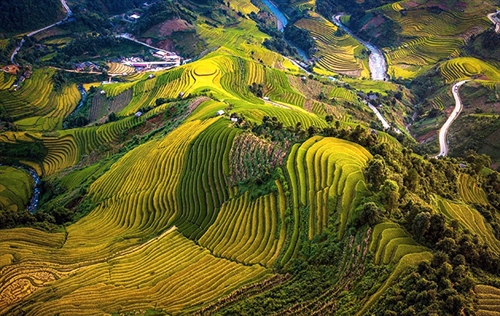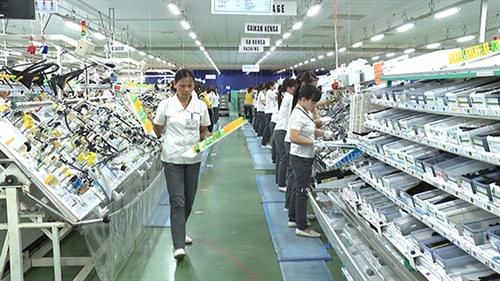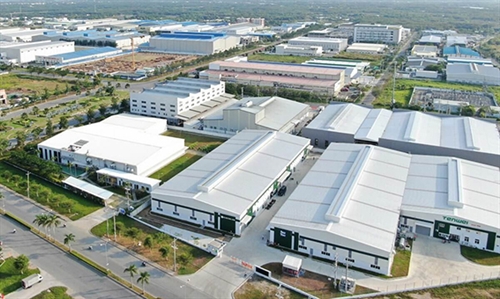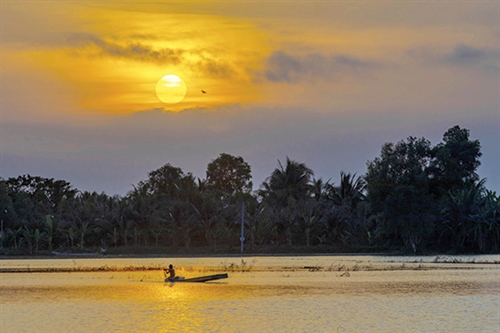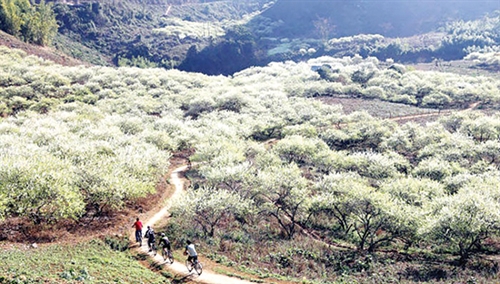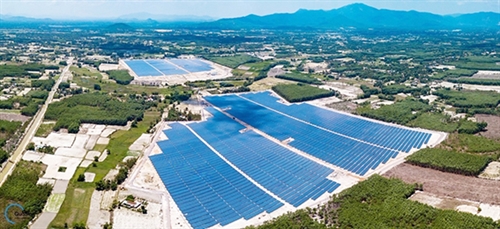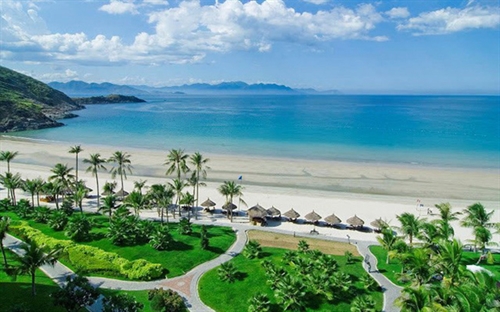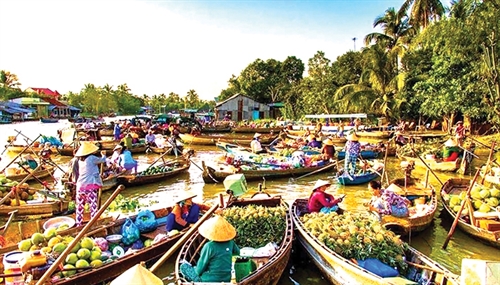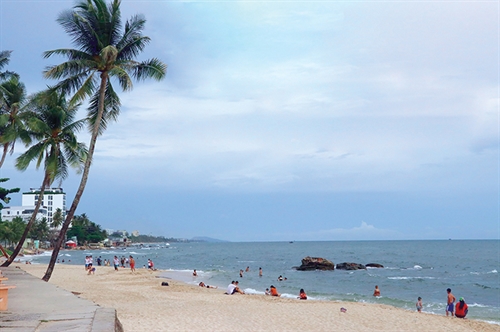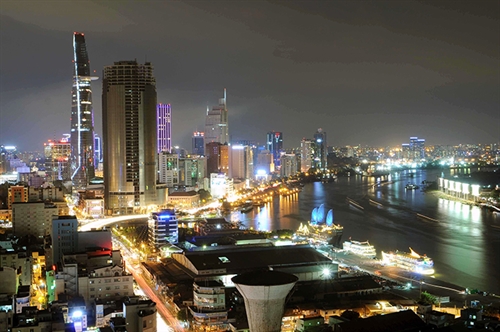Located about 165 kilometers from Hanoi, northern province of Tuyen Quang borders Ha Giang province to the north, Bac Kan and Thai Nguyen provinces to the east, Yen Bai province to the west, and Vinh Phuc and Phu Tho provinces to the south. The province has a natural area of 5,870 square kilometers and a population of 792,900 (according to the 2020 statistics). Tuyen Quang is home to Kinh (Viet) people as the most populous and 21 other ethnic groups, including Tay, Dao, San Chay, Hmong and Nung. It has a provincial city with the same name and six districts of Son Duong, Yen Son, Ham Yen, Chiem Hoa, Na Hang and Lam Binh.
Tuyen Quang province is connected with Hanoi and other northern localities by National Highways 2, 279 and 37. To help reduce traffic congestion on National Highway 2, an expressway connecting the province with the neighboring province of Phu Tho and linked to Noi Bai-Lao Cai expressway is being under construction at an estimated cost of around VND 3.2 trillion (USD 139 million). The 40.2 km-long four-lane expressway starts in Tuyen Quang city and ends at Phu Tho town. The Tuyen Quang-Phu Tho expressway is scheduled to open next year. The provincial authorities have proposed the Government to add the Tuyen Quang-Ha Giang expressway to the expressway network master plan for 2021-2030 period and allocate funds for investment in the project before 2030. The 165 km-long four-lane expressway starts in Tuyen Quang city and ends at Thanh Thuy international border-gate in Ha Giang province. The two expressways are expected to help promote provincial socio-economic development.
Improving infrastructure facilities for receiving investment
The province has determined to turn forestry into a spearhead sector of its economy. It is striving to become a national model locality for forestry-based economic development in association with eco-tourism. With 423,000 hectares of forests, including 120,000 hectares of planted forests, it ranks third in the country for forest coverage rate and first among the northern midland and mountainous provinces in terms of harvested timber.
Tuyen Quang has made considerable efforts to improve its rank in the 2020 Provincial Competitiveness Index (PCI) ranking and the 2020 Provincial Governance and Public Administration Performance Index (PAPI) rankings. With a score of 63.46 points, Tuyen Quang is now ranked 31st among 63 provinces and cities nationwide in the 2020 PCI ranking. Moreover, it jumped to the 12th place out of 63 provinces and cities nationwide in the 2020 PAPI rankings thanks to its high scores in three out of eight PAPI dimensions - vertical accountability toward citizens, public administrative procedures and public service delivery.
In the 2021-2030 period, Tuyen Quang province plans to focus on three development pillars: processing and manufacturing; tourism; and agro-forestry.
To facilitate the provincial socio-economic development, Prime Minister Pham Minh Chinh has advised Tuyen Quang province to speed up administrative reforms, improve its investment and business environment and competiveness, and increase the satisfaction index of public administrative services.
At present, the province only houses 18 foreign direct investment (FDI) projects worth about VND 7.4 trillion (USD 321 million) and two industrial parks, namely Long Binh An and Son Nam. It plans to build eight industrial clusters on a total land area of 525 hectares in Son Duong, Yen Son, Ham Yen and Tuyen Quang city in the 2021-2025 period.
According to an investment attraction scheme for the 2021-2025 period, Tuyen Quang is calling for between VND 15-20 trillion (USD 653-869 million) in FDI capital and between VND 25-30 trillion (USD 1.08-1.3 billion) in domestic capital in seven sectors and fields. They include high technologies, mechanical engineering and supporting industries, commercial services, tourism, hi-tech agriculture, education-training, healthcare, sports and environmental protection. While calling for investment, the province always attaches importance to projects’ quality and investors’ experiences and capability. It also gives priority to high added value to be brought about by environmentally friendly projects using modern technologies and in line with the province’s sectoral development master plans.
In order to attract more investment capital to Son Nam industrial park, Tuyen Quang Industrial Park Management Board has offered investors with various incentives. Projects that are on the list of those operating in sectors in which investment is prioritized will be exempt from import duty on machinery and equipment to create fixed assets and components, spare parts and parts in production lines, and raw materials. In addition, if fully satisfying the set conditions, investors will not have to pay for infrastructure facilities built outside the fences of their projects.
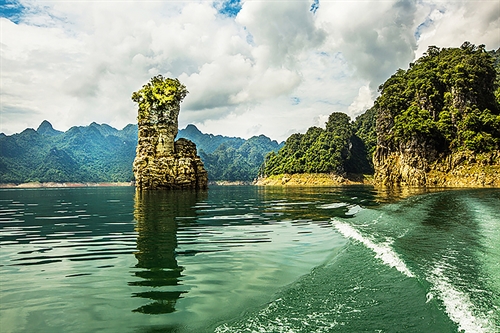 |
| Na Hang lake in Lam Binh district, Tuyen Quang province__Photo: VNA |
Eco-tourism development potential
Tuyen Quang province is home to a great number of historical and cultural relic sites, including Tan Trao historical site that was once the home of President Ho Chi Minh and the Party central agencies before the success of the August Revolution and in the resistance war against the French colonialists. Among the three national special relic sites is the Na Hang-Lam Binh Nature Reserve that is dubbed the on-land Ha Long Bay with green mountains, impressive caves and waterfalls and primitive forests. Both the Na Hang-Lam Binh and Tat Ke-Ban Bung Nature Reserves in the province are well-known for thousands of flora and fauna species.
As the home of 22 ethnic groups, the province is famous for two UNESCO Intangible Cultural Heritages of Humanity, including Then - a type of performance combining literature, music and dance - of the Tay, Nung and Thai, and the festival honoring Mother Goddesses - the heaven, water and mountains and forests goddesses - at the Thuong, Ha and Y Lan temples in the province. The province is also rich in festivals such as the annual Tuyen Quang city festival (or Tuyen Quang Mid-Autumn Festival), nhay lua (fire jumping), the crop-harvesting festival of the Pa Then, and long tong (going to the fields) of the Tay.
Tuyen Quang has six traditional craft villages famous for tea, weaving, wine and bamboo and rattan products. The most prestigious are Minh Quang bamboo conical hat village, Lang Can brocade weaving village and Son Duong tea village. Shan Tuyet tea is also another specialty of the province.
Tourism is expected to become an important sector, according to the provincial plan on tourism development through 2025, with a vision toward 2030.
The province now has a total of 200 hotels and guest houses in addition to dozens of homestay accommodations.
The hospitality sector expects to receive more than 3 million tourist arrivals and earn a gross profit of some VND 4.8 trillion (USD 208 million) by 2025.
To achieve the target, it will focus on attracting local tourists and holiday makers from countries where the COVID-19 is kept under control.
